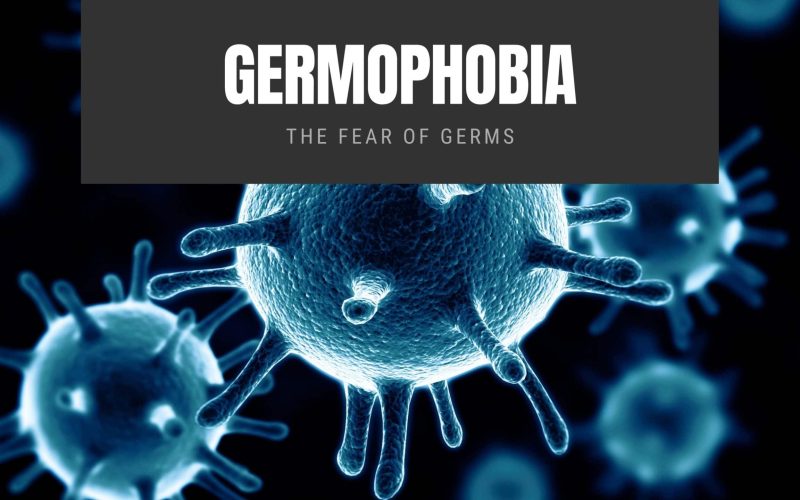Germophobia, also known as germaphobia, is the fear of germs. Generally, germs are microorganisms (like bacteria, viruses, fungi, or parasites) that can cause one to develop any form of disease.
Psychologists often use this term to describe people who have an in-depth fear or anxiety about germs. Most people who suffer from this disorder often feel that the infestation of germs can cause them to die.
However, in some cases, the infestation of certain germs can cause you to fall. However, not all microbes are harmful.
Certain microbes(mainly bacteria) live in our bodies. These kinds of bacteria can’t do us any harm.
Germophobia can also be known by different terms such as bacillophobia, bacteriophobia, verminophobia, or mysophobia.
It is important to note that one significant part of the systems in our body is known as the “Immune system.”
The immune system is the system that is responsible for defending our bodies against germs.
As we grow, our immune system becomes more potent, and this is due to the peaceful coexistence between the “good” and “bad” germs.
As kids, we once received something known as vaccination or immunization. This vaccination is simply the process by which a harmful microbe is introduced into the body system in a controlled manner.
Once this microbe enters your body, your body releases specific soldiers known as antibodies.
Therefore, these antibodies will go to where these microbes are and eliminate them.
As they do this, the body registers this microbe as a harmful substance; if you are exposed to it later in the future, your immune system becomes strengthened to fight against it.
This shows that, in some ways, we need the presence of harmful germs (although controlled) to strengthen our immune systems.
However, when there is an infestation or uncontrolled presence of germs, it causes us to fall sick.
This is why we need to maintain good health techniques so as not to be victims of these harmful germs.
However, this doesn’t mean we should become exceedingly anxious and start having panic attacks, as seen in people who have germophobia.
Causes of germophobia
Germophobia, just like other phobias, has no known cause. However, certain factors can contribute to the development of germophobia. These factors include:
1. Traumatic Experiences That Occurred in Childhood
It is often said that children don’t forget what they see. Most people who are experiencing or have experienced germophobia have usually indicated that they had a particular unforgettable traumatic experience with germs, which later on developed into a phobia.
For example, a person who has developed germophobia may have lost a loved one due to sepsis or may have been very sick while they were children, and their doctors related their sickness to the presence of germs.
2. Genetics (Family History)
Most people in families who have anxiety disorders or have any phobia in the past may go on to develop specific phobias, including germophobia.
It is important to note that you can suffer from a type of phobia or anxiety disorder different from that which your other family members have suffered from.
For example, if you have a family history of schizophrenia or autophobia, you can go ahead and develop germophobia or any other phobia that there is.
This is because there is already the genetic disposition for you to develop phobias and anxiety disorders in general, and as such, it doesn’t matter which your family member(s) had suffered from; you may go on to suffer an extremely different kind of phobia.
3. Environmental Factors
As children, we are usually exposed to certain beliefs and traditions that can easily influence our minds about germs.
We have been told all sorts of things about germs, and although some of these speculations are true, some are based on assumptions.
These speculations can, in more ways than one, cause a child to fear germs and develop germophobia later in life excessively.
4. Brain chemistry
Sometimes, certain changes can occur in the functionality and chemical composition of the brain.
Generally, when you carry out a particular action constantly, your brain adapts to it, and suddenly, it becomes a lifestyle. This is the same thing that occurs when a person develops a phobia.
For instance, a person can develop germophobia when everything about his or her life and activities is targeted against ‘hating’ germs.
Suddenly, the changes in brain chemistry and the way the brain functions become normal, and as such, whenever the patient thinks or hears about germs, they will begin to have anxiety attacks.
Factors That Trigger Germophobia
Aside from the causes of germophobia, certain factors can trigger the brain of a person who has anxiety disorders to experience an ‘episode.’
These factors include:
1. Body Fluids of Another Person
Often, certain people who have germophobia believe those body fluids produced by a person contain loads of microbes and, as such, can infect them.
Hence, seeing or mistakenly touching another person’s body fluids can trigger their symptoms.
2. Unclean Objects or Surfaces
One particular thing people who have germophobia often avoid is touching any object or surface that they haven’t certified clean.
For people who have germophobia, having to touch keyboards, doorknobs, unwashed clothes, table surfaces, and so on can cause them to have a full-blown panic attack.
3. Certain Locations
It is common knowledge that germs are often around some places, such as schools, hospitals, and airports. Putting a person who has germophobia in such places can launch them into full-blown panic attacks and anxiety breakouts.
4. People
Germophobics often believe that people carry a large number of germs around without knowing and, as such, try to avoid touching people intentionally or having body contact with them casually.
They also believe that most people have certain unclean habits, which usually leads them to avoid contact at all costs.
Symptoms
It is okay to have fears, especially regarding germs. However, people with germophobia have more than just fears. They tend to go to extremes in avoiding or coping with their fear.
Often, people with this disorder’s anxieties and distresses, which stem from an irrational fear of germs, cause more harm than what the germs would most likely cause in their bodies. The reason is not so far-fetched.
People who have germophobia are ready to do anything to avoid their fear, and this sometimes pushes them to unreasonable extents.
The common symptoms of people who have germaphobia experience can be classified into three groups, namely:
- Emotional symptoms
- Behavioral symptoms
- Physical symptoms.
1. Emotional Symptoms
Mostly, germophobia starts from the mind, and as such, these symptoms are typically the first you may see in a person who suffers from this disorder. The symptoms include:
- Extreme terror and fear of germs
- Worries, nervousness, and anxiety whenever they are being exposed to germs
- The mere thought of being exposed to germs and other diseases can cause illnesses, or other negative thoughts can cause germophobia
- You may find that you often feel overwhelmed by situations that can result in the infestation of germs.
- Extreme feeling of powerlessness to stop any microbe that may infect you.
2. Behavioral Symptoms
These symptoms include;
- You always have to leave places or situations because you perceive that they are exposed to germs.
- Spending excess time thinking about, preparing for, or putting off most conditions you feel might involve germs.
- Most times, you have to seek help to cope with your anxiety and conditions that might cause you to keep having this phobia.
- Often, you have difficulties performing your basic duties at home, school, work, or any other place due to your paralyzing fear of germs. For example, if you find yourself always trying to fulfill the deep need to wash your hands everywhere, it may limit your performance in places where you perceive germs to be.
3. Physical Symptoms
The physical symptoms of germophobia are often almost the same as the signs you would experience when having any other specific phobia.
These physical signs are often not limited to places where you perceive germs to be.
Sometimes, just the thought of germs and what they may do is enough to trigger these symptoms in the germophobic person.
These symptoms include:
- Racing heartbeats and pulse rates
- Breakouts of sweat or chills.
- Difficulties in breathing
- Shallow breaths or shortness of breath
- Pains or tightness felt in your chest
- Dizziness and lightheadedness
- Tingling fell in both the hands and legs.
- Tremors and uncontrollable shaking of hands
- Muscle tightness and tension
- Restlessness
- Lack of coordination
- Headaches
- Intense difficulties to calm down
- Vomiting and nausea
It is important to realize that germophobia can often occur in children as well. As parents, the earlier you recognize the signs, the easier it is to treat your child.
If your child is having germophobia, he or she will experience symptoms such as:
- Crying, screaming, and uncontrollable tantrums
- Refusal to leave one’s parents which often results in clinging
- Nervous movements and lack of coordination
- Low self-esteem
- Difficulties in sleeping
Germophobia and Obsessive-compulsive Disorder
One frequent question people often ask is if germophobia and Obsessive-Compulsive Disorder (OCD) mean the same thing.
Usually, although in some ways they are relatable, germophobia and OCD are two completely different disorders.
A person dealing with OCD will have persistent and recurring obsessions that, more often than not, lead to anxiety and panic attacks.
The feelings of uncleanliness that people with OCD have to deal with often cause them to have repetitive and compulsive behaviors that may bring them temporary relief.
People with OCD often have this deep need always to clean their environment. It is entirely possible to have OCD without having germophobia; likewise, it is possible to have germophobia without dealing with OCD.
However, it is also quite likely to be dealing with both germophobia and OCD.
The difference, however, between these two conditions is that people who deal with germophobia are always seen to clean their environment to reduce the breeding of microbes, while people with OCD often clean because they feel like cleaning and, as such, to reduce their anxieties, they are always doing one cleaning chore or another.
Impacts of Germophobia on Your Everyday Living
In people dealing with germophobia, the excessive fear of germs is enough to disrupt your routine lifestyle.
People with this phobia often go to great lengths to avoid situations that will bring germs closer to them.
Engaging in activities such as attending an outdoor program, eating in a public place, or having sex is a no-go area for them.
Places such as schools, work, and actions like touching handles of objects, doorknobs, or shaking hands with people are mostly avoided.
Due to their anxiety, people with germophobia wash their hands more frequently than normal.
Washing your hands can reduce the tendency to contract germs; however, doing this frequently can become time-consuming and cause you to lose focus on other essential things, such as your work.
Treatment
Treatment of germophobia aims to make you feel more comfortable around germs so that you can go about your everyday activities without having to worry about them.
Treatment of germophobia can be grouped into three main categories:
1. Therapy
Therapy has been seen to be one of the most effective treatments for most phobias, including germophobia.
Among the various therapies that there are, Cognitive Behavioural Therapy as well as Exposure therapy has been seen to be most effective when it comes to treating phobias.
Cognitive Behavioral Therapy mostly includes a series of skills you can use when you feel your thoughts and fears about germs are overwhelming.
Exposure therapy, on the other hand, has to do with the processes by which the person who has germophobia is gradually exposed to his/her triggers.
The goal of exposure therapy is to let you get comfortable with your fears and reduce the anxiety levels you initially experience when confronted with these triggers.
2. The Use of Medications
In some cases where your doctor feels that therapy isn’t enough, he or she might prescribe certain drugs for you to use. Such drugs may include:
- Selective Serotonin Reuptake Inhibitors (SSRIs)
- Serotonin- Norepinephrine Reuptake inhibitors (SNRIs)
- Beta-blockers
- Sedatives
- Antihistamines
3. Self-help
Self-help refers to your lifestyle changes and the applications of home remedies to help reduce your anxiety about germs.





